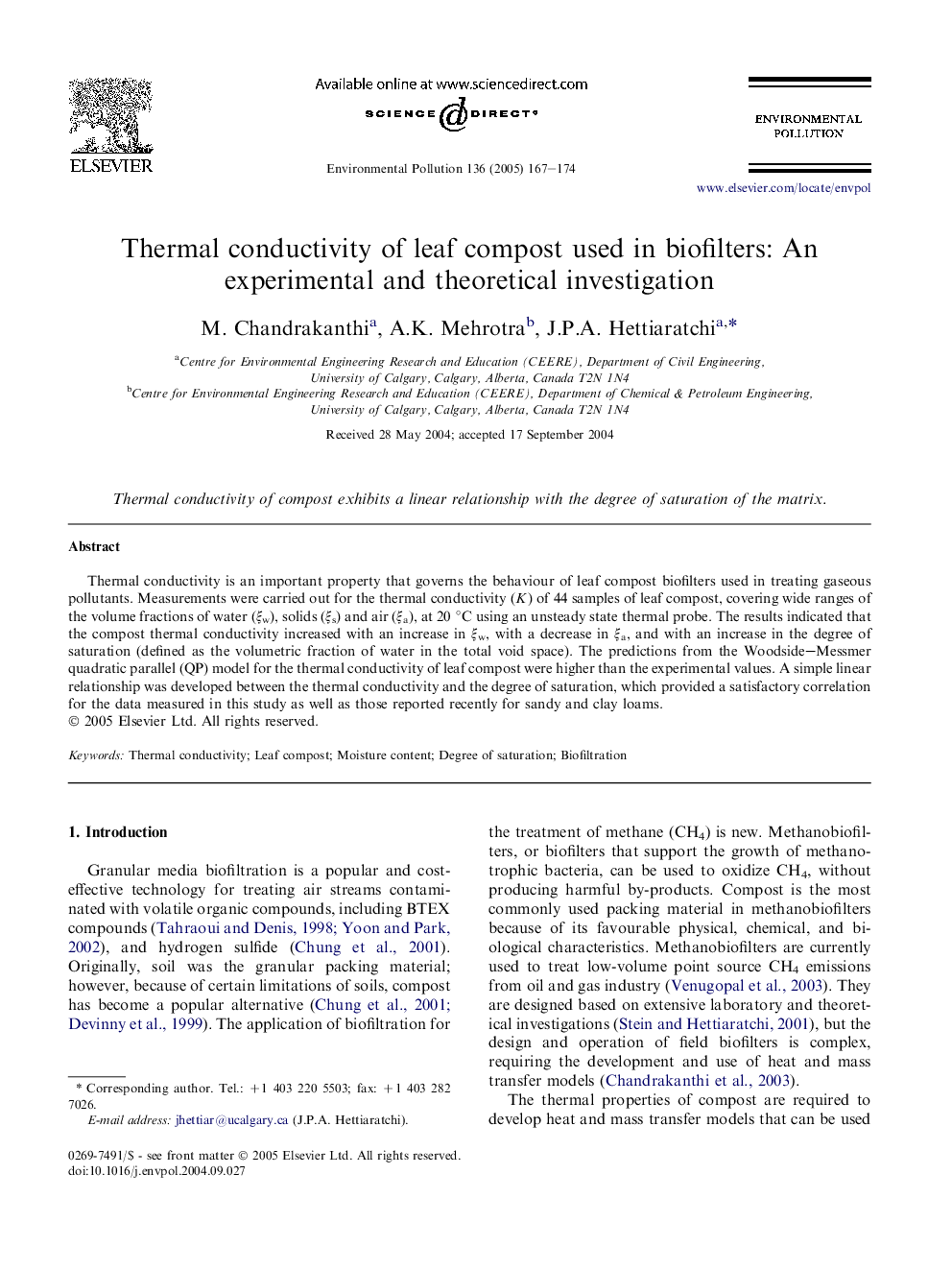| Article ID | Journal | Published Year | Pages | File Type |
|---|---|---|---|---|
| 9456330 | Environmental Pollution | 2005 | 8 Pages |
Abstract
Thermal conductivity is an important property that governs the behaviour of leaf compost biofilters used in treating gaseous pollutants. Measurements were carried out for the thermal conductivity (K) of 44 samples of leaf compost, covering wide ranges of the volume fractions of water (ξw), solids (ξs) and air (ξa), at 20 °C using an unsteady state thermal probe. The results indicated that the compost thermal conductivity increased with an increase in ξw, with a decrease in ξa, and with an increase in the degree of saturation (defined as the volumetric fraction of water in the total void space). The predictions from the Woodside-Messmer quadratic parallel (QP) model for the thermal conductivity of leaf compost were higher than the experimental values. A simple linear relationship was developed between the thermal conductivity and the degree of saturation, which provided a satisfactory correlation for the data measured in this study as well as those reported recently for sandy and clay loams.
Related Topics
Life Sciences
Environmental Science
Environmental Chemistry
Authors
M. Chandrakanthi, A.K. Mehrotra, J.P.A. Hettiaratchi,
